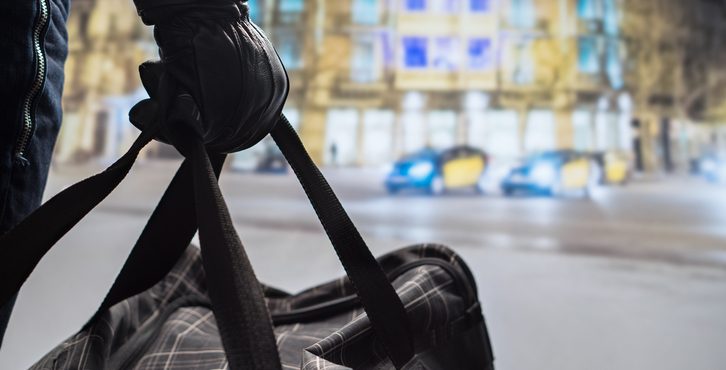The Shrinking State – The Increasing Vulnerabilities
Amongst the general Brexit gloom another perhaps more disturbing headline appeared in the papers. This was the announcement that police would no longer be investigating burglaries and other ‘low level’ crimes. In fact, if the police do not have a named suspect, they will not proceed with an investigation or a prosecution. The British police find themselves assailed from all sides; in dire need of funding, more officers and efficient reforms whilst simultaneously facing an ever-growing population, more complex threats and a more unequal society.
The Sun, which was the first paper to discover the existence of such a policy, stated that it was a ‘green light to rob’. The Met does not seem to dispute the idea that the policy will likely cause a rise in crime, with Deputy Assistant Commissioner Mark Simmons saying “We are having to balance the books with fewer officers and less money”.
Though the above information may seem shocking, in truth it is merely expressing the trend of a shrinking state. In 2015 Sarah Thornton, the then incoming Head of the National Police Chiefs Council, stated that victims of burglary should not expect a police presence in their home following an incident.
It is not only the police that are shrinking. At every level of the criminal justice system, cuts are starting to have an effect. Though the police represent the ‘front line’ against criminals, other areas such as the Crown Prosecution Service (“CPS”) have also suffered severe cutbacks that have caused cases brought against criminals to collapse due to errors caused by lack of staff and overwork. Lack of prison funding has also seen two thirds of British prisons overcrowded, with Judges encouraged to pass over custodial sentences to avoid fuelling the problem.
So where does this leave the British public? Though the state is pulling back from roles it has traditionally occupied for centuries, very little exists to take its place. Faced with a police force that is pulling back, shedding officers and no longer investigating most ‘conventional crimes’, one would have thought that a reasonable legislative response would be to increase the rights of citizens to protect against criminality. This has not occurred, however. In 2014, the former Head of Public Prosecutions, Sir Kier Starmer wrote in The Guardian newspaper that victims were the ‘poor relations’ in the criminal justice system. Since the time of his writing the situation has remained largely unchanged, although Sir Starmer should be credited for helping victims of sexual assault by forcing public service workers to report suspected crime. Baroness Newlove, the Victims Commissioner, stated that ‘too often victims feel like bystanders’. Baroness Newlove’s statement is in relation to a prosecution (if one has been launched) which in the majority of cases never occurs. This is in no way to suggest that UK homeowners should arm themselves and enact that famed US ‘Castle Doctrine’, which allows (in some circumstances) homeowners to have immunity from using force on intruders (up to and including deadly force), but perhaps some type of balance should be considered.
Until some sort of readjustment occurs the onus, therefore, is restitution, security and even at points investigation and now rests squarely with the homeowner, their insurer and any private parties they wish to hire.
Restitution
Items, once stolen, are extremely hard to recover. With law enforcement agencies not able to provide the manpower to aid a physical recovery of the items, victims are routinely turning to private agencies and as they are being funded by the involved parties, have the time, expertise and the required contacts to aid the recovery of the items. However, success is not always a guarantee and individuals should be aware of fraudsters and scammers offering recovery services. If a victim is not quick to start the recovery process after a burglary, the chances of being able to recover anything at all drop dramatically. To be adequately financially recompensed against loss from a burglary a homeowner must be sufficiently insured against the loss, although this won’t alleviate any sentimental loss.
There are probably few conversations that are as necessary (and dull) as an insurance discussion, but given the current climate, having adequate insurance is vital. According to data released by Hiscox in 2015, 1 in 5 UK homes are underinsured, whilst a colossal 75% of high net worth homes suffer from the same problem. The issue at stake is a simple one, people don’t want to spend money on an event that they assume will not happen to them, or alternately, assume that their home is covered under the conventional home insurance they possess already and that there is no need to do anything further.
Outside of fiscal concerns there is another factor at play, which perhaps explains many wealthy individuals’ refusal or neglect to insure despite the risks involved. The fact is that most people measure their wealth and success by those above or next to them. The 1% might be streets ahead of the 99% but will always measure themselves against the 0.1%. It’s rare that people measure their good fortune against those below them; we are conditioned to think in terms of ‘keeping up with the Jones’ rather than realising perhaps how far we are ahead.
Simple home insurance will, in most cases, not cover the value of the items that would be stolen from the home of a person of the UK middle and upper classes. Homeowners’ insurance is designed for the ‘conventional’ but many people have unconventional items or collections that may be far more valuable. Many people will have little interest in cars and watches but will spend many thousands on perhaps something more esoteric, such as rare books or antique ceramics. Regardless if an insurance provider feels that a client has underinsured themselves when their claim comes through, their provider may simply refuse to pay, or pay at a vastly reduced sum, leaving the victim (already the ‘poor relation’ of the criminal justice world) both out of pocket and with no recourse to justice, even if the CPS chooses to prosecute (or investigate).
Protecting the home
The other way of dealing with a police force no longer able to address most burglary scenes is to take matters into one’s own hands. This is not to advocate vigilantism or reams of razor wire and cameras, but clever, discrete security arrangements are able to massively reduce the risk of a crime occurring. Many burglaries are not opportunistic (especially outside of major cities) and criminals may have spent several days (or even weeks) watching a property in order gauge the potential risks and rewards in what is called the ‘targeting phase’. Disrupting the targeting phase will often cause potential criminals to go elsewhere, seeking easier and less risky ‘marks’. Disruption can be caused by many factors, whether it’s the sight of electric gates, access control / lighting to vigilant neighbours who will challenge unknown people or vehicles. Often, a sense of community is the greatest defence, as people can recognise potentially suspicious individuals with far more success than even the most advanced camera system.
As well as creating a physical deterrent around the home itself, individuals can help protect themselves by lowering their profile online, for example removing themselves from the electoral roll and avoiding posting pictures displaying their level of wealth or their current location. There have been several documented instances of burglaries coinciding with social media posts stating an upcoming holiday, and simply by being more aware of one’s online privacy settings / posts can help lower an online profile significantly.
Issues surrounding one’s exposure online also ties into issues surrounding insurance. With insurance providers taking on more risk, they are expecting their client to be more aware of their own security. Posts of expensive items on social media or clear indications of holiday dates can be seen by insurance companies as raising risk to unacceptable levels, and they may simply refuse to pay a claim if a client can be proved to have ‘brought the risk upon themselves’.
Investigations
Though private firms have always been available to help assist families, companies and individuals in investigating crimes, such as burglary, there was an expectation in years past that this was largely the job of the police. With the police pulling back, however, the role of private groups in investigating crime and bringing cases against criminals has expanded considerably. These agencies are called in to assist interested parties, post burglary, and work closely with them to run an investigation in order to help catch a potential suspect or achieve some manner of recovery. The key factor regarding an investigation is speed. The quicker a victim of crime is able to have investigators on scene and the task moving forward, the more likely the chances of a successful result. Everything from forensics to CCTV examination can be made available to clients with the aim of being able to produce a report that can be submitted to the CPS in order to help them pursue a case in court.
Regardless of how one feels about the current shrinking nature of the state, the fact remains that the current situation is unlikely to change. Should a Labour government win the next general election (normally a sure sign of increased government spending) there still seems little chance of change. The economic turmoil generated from Brexit and the current unstable nature of world affairs would mean that even an extremely competent administration, under any party, would struggle. There may come a time when the state grows once more and policing can resume its abandoned roles, but until that point homeowners should consider their home security and make sure to check their insurance.
[1] https://www.theguardian.com/uk-news/2017/oct/16/low-level-crimes-to-go-uninvestigated-in-met-police-spending-cuts
[1] http://www.bbc.co.uk/news/uk-wales-35496012

